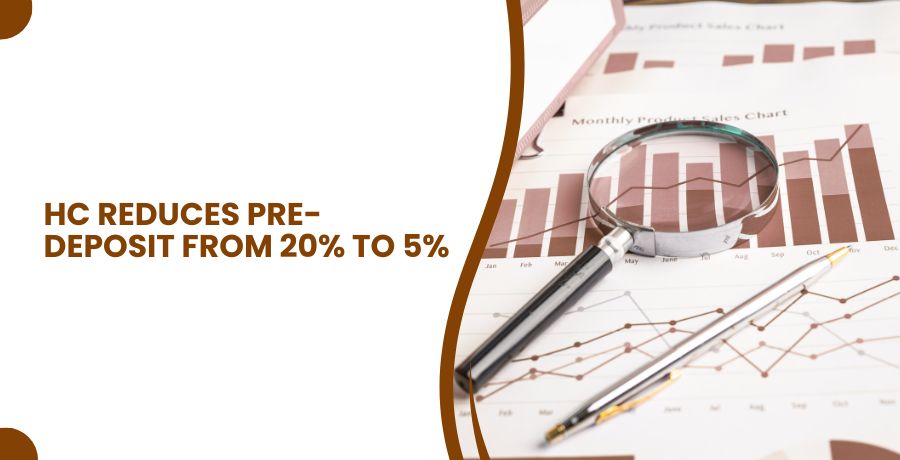
HC reduces pre-deposit from 20% to 5% in stay of demand order in view of high-pitched Assessment
A recent ruling in the Chhattisgarh High Court provides relief to taxpayers who are served with unreasonable tax demands experienced in the case of Bali Nagwanshi vs. Union of India, (Writ Petition No. 779 of 2022) is the marked reduction of the pre-deposit to grant the stay of the demand order, from the normal 20%, down to 5% of the demand order. The High Court's ruling emphasizes the courts sympathies to intervene in "high pitched" assessments of taxes cause harshness to the assesses.
A high-pitched assessment means a tax assessment where the income determined by the Assessing Officer is considerably more than the income reported by the taxpayer on their return. High-pitched assessments frequently generate a tax demand that is much greater than it should be and can create significant difficulties to the taxpayer when they seek a review of the assessment.
Let us explore the details of this remarkable case:
In light of the vast financial distress that the assessee was undergoing, the Chhattisgarh High Court was moved to intervene. The Court indicated that "onerous," and "undue hardship," were terms they felt captured the situation where the assessee was required to pay Rs. 5 lakhs per month until the 20% of the assessed demand was paid. These provisions amounted to considerable deprivation of the right of appeal against the assessment order.
The High Court's decision was based on the following key considerations:
Taking everything into consideration, the High Court altered the pre-deposit requirement. It directed Mr. Nagwanshi to pay Rs. 1 lakh per month until the outstanding demand was lowered to 5%, or until the Appellate Authority provided advice.
This ruling represents a definite victory for taxpayers and will serve as authority for future rulings regarding high-mounted demands. The ruling clearly defines that the pre-deposit requirement in an appeal, must be "reasonable" and not simply a harassment scheme for taxpayers. This case will clearly be cited in many future matters in which the taxpayer faces excess and apparently arbitrary tax demands.
Ultimately, this ruling serves as a reminder to tax authorities to be fairer and more reasonable in assessing tax demands. The goal of the tax department is to collect revenue for the State; however, the tax department cannot do so in a manner that paralyzes the taxpayer and denies them fair process. This case reminds us that the judiciary is required to abide by the principles of natural justice in the tax context.